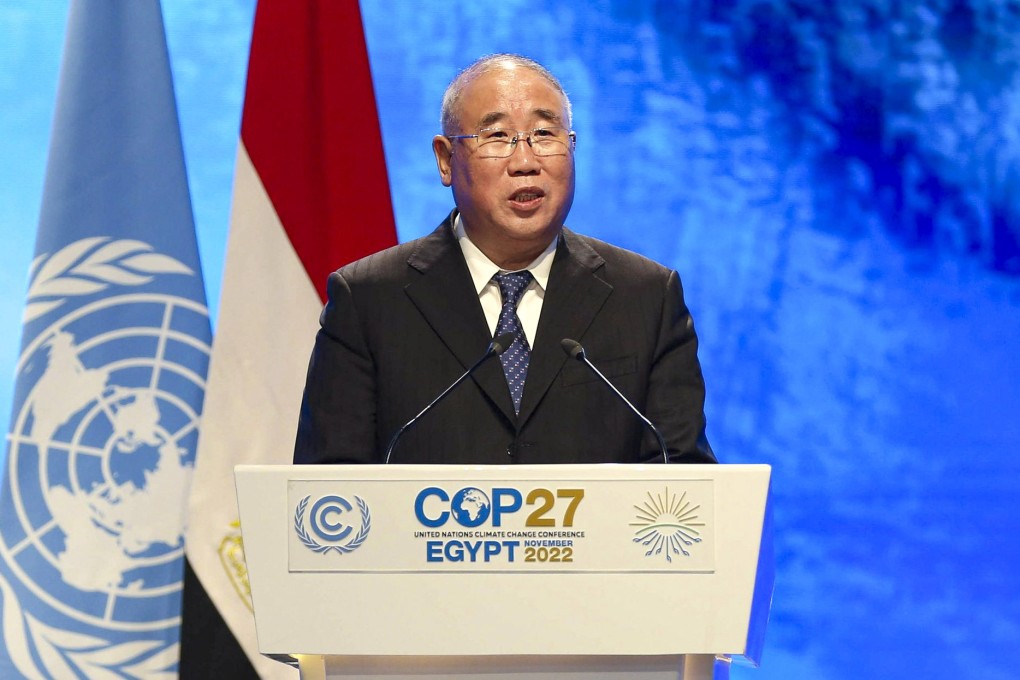COP27: Top climate envoy says Beijing committed to carbon neutrality
- China will steadfastly deliver on its carbon neutrality goal, top climate diplomat Xie Zhenhua tells summit
- Developed nations must redouble decarbonisation efforts, bring forward target dates for carbon neutrality, and provide extra funds to help developing nations, envoy says

Xie, Beijing’s special envoy for climate change, called on developed nations to lead by redoubling their decarbonisation efforts, bringing forward substantially their target dates for reaching carbon neutrality, and providing extra funds and delivering on their promise to provide US$100 billion of financing help to developing countries.
China has pledged that its carbon emissions will peak before 2030 and that it will become carbon neutral by 2060. Most developed nations such as the United States and European Union members have agreed to do so by 2050. India aims to do so by 2070.
Carbon neutral means residual emissions after extensive decarbonisation efforts will be fully offset by carbon dioxide captured and stored away safely. This can be achieved either naturally, such as by planting trees, or artificially by facilities that suck up, transport and store the gas in underground caverns.